
Cinema has experienced a rising trend of what audiences call “social” horror/thriller movies, which use terror and suspense to discuss important issues of race, gender, politics, etc. This isn’t to say horror movies aren’t socially conscious, as many films of the genre have addressed important issues and ideas about society since cinema’s early days.
Calling a horror/thriller film “social” or “elevated” may seem elitist, but it has brought greater attention to the true potential that movies like these ten have displayed by making such commentaries.
10. The Stepford Wives (1975)
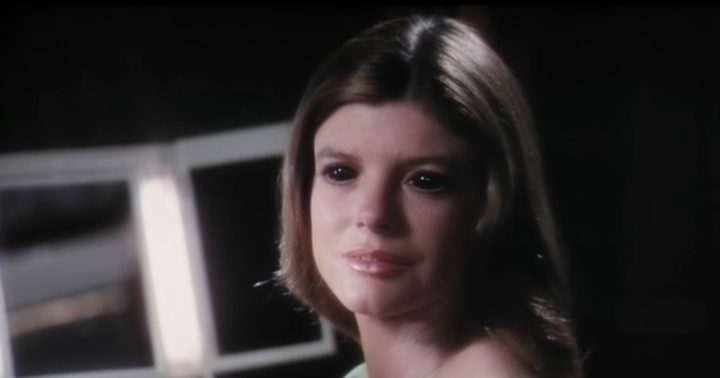
Based on the book by Rosemary’s Baby author Ira Levin, this cult sci-fi classic follows a woman who moves into a town with her family, discovering that all the other women act like robotic, submissive housewives.
Though it was considered misogynistic by feminists upon release, The Stepford Wives has since been praised as a satirical critique of how men oppress and try to control women in modern society. Fun fact: This film was a strong inspiration to Jordan Peele when he wrote Get Out, a film that conveys a similar message about Black oppression.
9. The Invisible Man (2020)
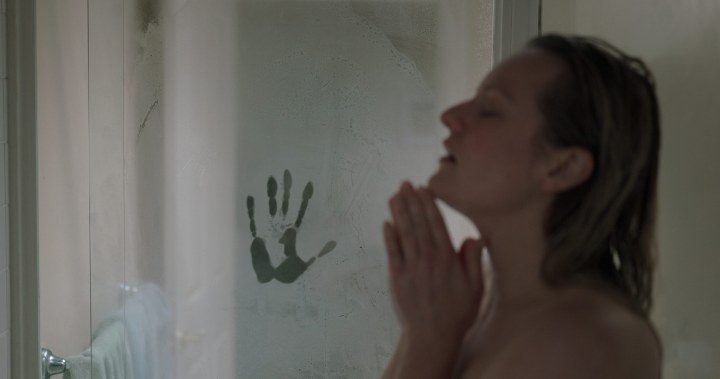
In this remake of Universal’s classic horror movie, a woman finds herself tormented by an unseen stalker she believes to be her abusive ex-boyfriend wearing a hi-tech invisibility suit.
Exploring themes of trauma and domestic abuse, director Leigh Whannell’s The Invisible Man is a timely and terrifying nightmare that many women can, unfortunately, relate to. And after Universal’s “Dark Universe” came dead on arrival, this film proved that its library of iconic monsters still had enough life to be a critical and commercial hit in the modern age.
8. American Psycho (2000)
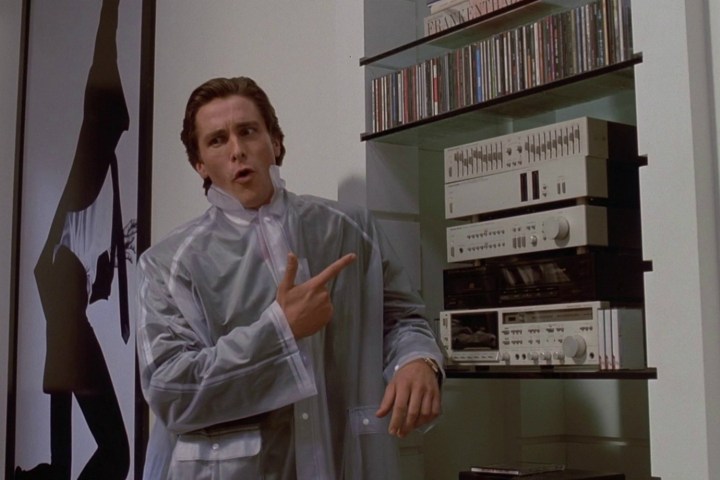
In a dark throwback to the ’80s, American Psycho follows a materialistic investment banker as he balances bragging about his wealthy lifestyle, self-care routine, and knowledge of popular music and chopping up unwitting people into bloody pieces. This extreme black comedy satirizes U.S. capitalism and consumerism through the upper-class Patrick Bateman, who treats everyone and everything as disposable objects to satisfy his violent and sadistic desires.
While he tries to come clean about his crimes, the fact that nobody believes him embodies how society allows such amoral people to prosper, whether it be out of ignorance or a similar disregard for human life.
7. Promising Young Woman (2020)

Years after her best friend committed suicide following her sexual assault in college, Carey Mulligan’s Cassie seeks vengeance on the men and women who let this crime go unpunished.
Having received the Oscar for Best Original Screenplay, Promising Young Woman explores the rampant predatory behavior of men towards women and how such injustice is suppressed by men with money and power and by a society that excuses such actions. It also captures the apathy and hypocrisy certain people display towards tragedies unrelated to them or those they love, as it only takes Cassie’s dark tricks to show them how uncaring they really are.
6. Rosemary’s Baby (1968)
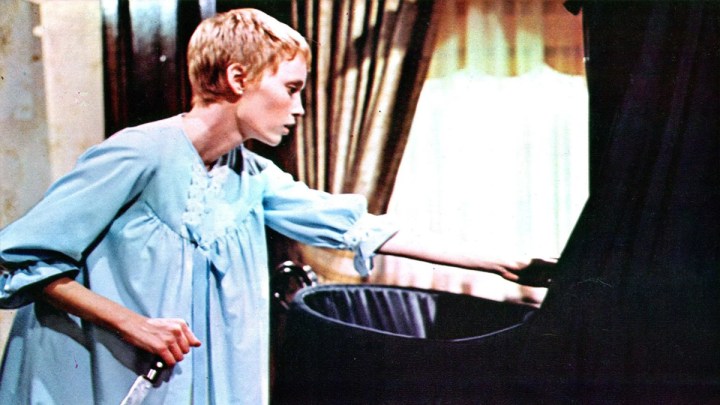
This psychological horror film follows a pregnant woman who suspects her new neighbors are part of a Satanic cult that intends to steal her baby. With her husband, her doctor, and her peers controlling and gaslighting her at every turn, Rosemary becomes the unfortunate victim of the cult’s sinister machinations.
Thus, Roman Polanski’s masterwork ironically reflects still relevant issues of sexism and the limiting of women’s rights and identities, particularly in Hollywood and in organized religions.
5. Knives Out (2019)

Director Rian Johnson reinvigorated the mystery franchise with this thrilling, intelligent film. Knives Out centers around a detective’s investigation of the apparent murder of wealthy novelist Harlan Thrombey. However, the film flips the story by following the nurse Marta as she tries to hide the truth, believing she poisoned Thrombey by accident. With that, the movie explores issues of racism, xenophobia, and the division of social classes as Marta’s once benevolent employers suddenly turn on her after she is revealed to be the inheritor of Thrombey’s fortune.
4. The Shining (1980)
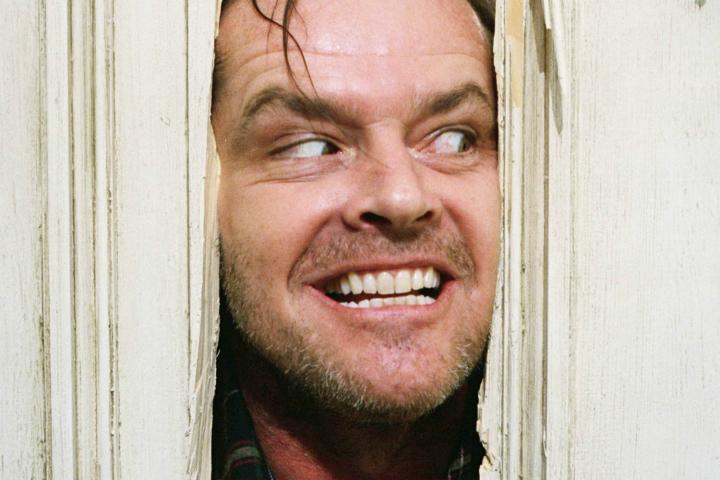
When you think of The Shining, you might not consider it a social horror movie. At first glance, Stanley Kubrick’s film is about an alcoholic father who turns murderous when he and his family stay in an isolated and haunted hotel for the winter. However, over the years, many people have analyzed every little detail of Kubrick’s film and concluded that it contains hidden messages about the dark, violent aspects of human history. Specifically, it invokes images of the Native American genocide and the Holocaust, reflecting how the Overlook Hotel’s past continues to haunt its inhabitants. It has also explored toxic masculinity and sexism through Jack’s abusive past and Wendy’s submissiveness to her husband, distinguishing itself from Stephen King’s original story.
3. Night of the Living Dead (1968)
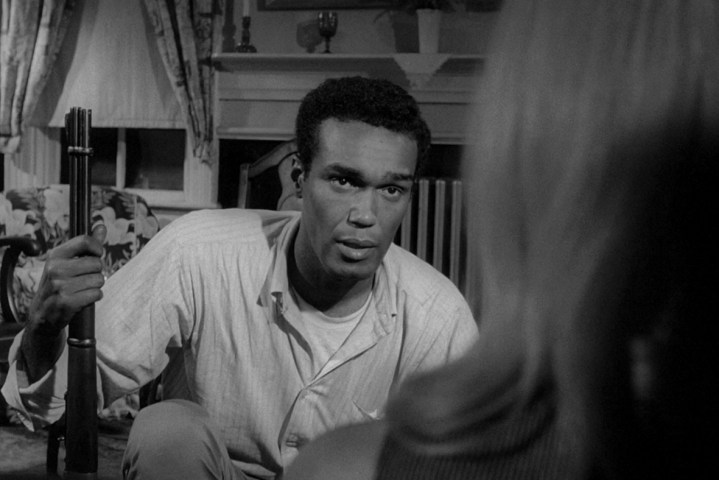
In George A. Romero’s low-budget juggernaut, a group of strangers seeks refuge in an abandoned farmhouse when an army of the undead suddenly rises throughout the country.
While the film invokes images and anxieties brought on by the Vietnam War, Sam’s tragic death at the end by a mob mistaking him for a zombie reflects the racial tensions and deadly prejudice embedded in society even today. Night of the Living Dead thus became one of the most successful, subversive, and influential horror films in history.
2. Parasite (2019)

This South Korean masterpiece follows an impoverished family who lies their way to getting jobs working for a wealthy family whose house contains a bizarre secret of its own.
With the Kim family doing whatever it takes to enjoy the luxuries of their rich employers, Parasite explores how the upper-class feed on the lower class and vice versa and how each group perceives the other. And in displaying the massive division of social classes, the film shows how such an unequal economy has left countless families like the Kims struggling to survive.
1. Get Out (2017)
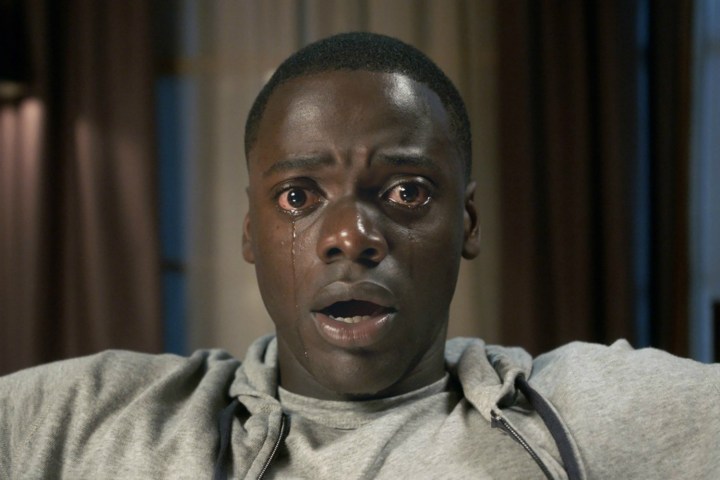
When a young Black man meets his white girlfriend’s parents at their country home, he uncovers a bizarre and disturbing conspiracy targeting him and other Black people in the area. Jordan Peele‘s first film attracted greater attention to the social thriller genre, as it famously explores how systematic racism remains still embedded in America.
With the villains being arrogant liberals who fetishize and profit off of Black bodies, the film subverts the audience’s preconceived notions of prejudice. The Sunken Place has also become a popular symbol of how marginalized communities continue to be silenced in modern society, taking slavery to a whole new level.



